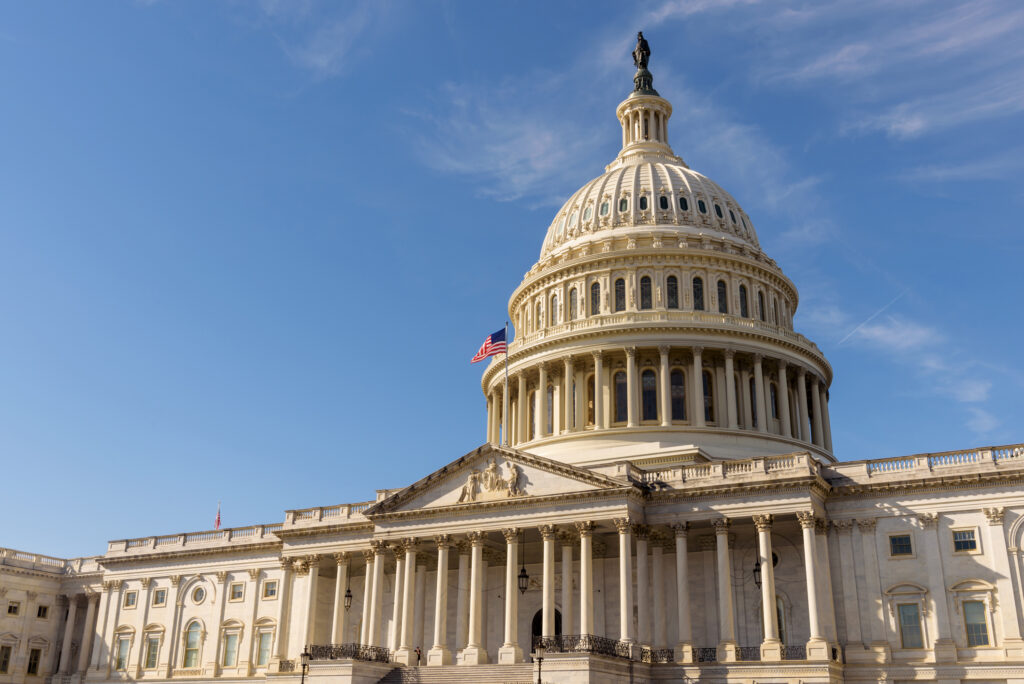Power Breakfast panelists share advice on building resilience amid disruption

Sarah Diehn May 2, 2025 | 6:00 am
4 min read time
1,021 wordsBusiness Record Insider, Government Policy and LawOver the past few months, business and nonprofit leaders have been met with a chain of current events nationally and locally that are creating uncertainty around how their organizations will be affected and how to provide steady leadership as circumstances fluctuate on a daily basis.
At our upcoming Power Breakfast on May 15, we will convene a panel to offer insight into the local effects of the most pressing economic and social issues on business leaders’ minds. We have identified a few of the major topics with existing or potential effects for Iowa’s business community, including federal policy and funding changes, tariffs and their effect on the economy and shifts in the DEI climate.
Our panelists will break down these issues and help leaders think about what to prepare for and how to lead their teams in a rapidly evolving climate.

Panelists include:
- Joel Anderson, partner, RSM US LLP
- Mike McCoy, CEO, NCMIC Group Inc.
- Matthew Mitchell, CEO, Bâton Global
- Anne Villamil, professor and research fellow in economics, University of Iowa
- Jo Ellen Whitney, shareholder and chair, Employment Law and Labor Relations Department, Dentons Davis Brown
Ahead of the event, we asked panelists to answer the following question:
What is an action leaders can take to help make their businesses and operations more resilient when circumstances are changing and causing disruption on a regular basis?
Here is what they said.

Joel Anderson, partner, RSM US LLP
To build resilience in the face of ongoing disruptions, businesses should diversify their supply chains and embrace emerging technologies. Establishing relationships with multiple suppliers across different regions and incorporating local sources when possible reduces dependence on any single area and helps mitigate risks tied to logistics or regional instability. At the same time, adopting technologies like AI, machine learning and automation enables smarter forecasting, optimized inventory and scheduling, and more agile operations.

Anne Villamil, professor and Henry B. Tippie research fellow in economics, University of Iowa
It is important to acknowledge that the trade war and unclear policies (i.e., tax, monetary, funding freezes) have created a difficult business environment. It is very difficult to make and execute plans in such an uncertain environment. Until there is more policy certainty, the main action is to communicate:
- Communicate with customers, workers, capital providers, supply chain partners and elected representatives. Provide as much information as possible. For example, if you must raise customer prices, communicate that tariffs increased input costs, disrupted supply chains and are affecting interest rates. Talk to staff about the challenges and provide support when possible.
- Concerns about inflation and rising interest rates, retaliatory tariffs imposed by other countries and currency uncertainty complicate the problem relative to the pandemic. If you have loans, talk to lenders proactively. Rising interest rates increase costs and could lead to a “credit crunch.” Build reserves if possible.
- Build networks, through events and industry groups, to share information and learn from peers in real time. Networks can be an effective way to share strategies for communicating impacts and concerns to policymakers.

Matthew Mitchell, CEO, Bâton Global
At Bâton, we sometimes joke that in our line of work, “Shift Happens,” and that’s OK. In fact, only 10%-30% of organizational decisions can be accurately described as intended strategy — those decisions carefully planned in advance. That means the remaining 70%-90% arise in response to changing circumstances: unexpected disruptions, newly instituted policies or a competitor’s bold move. This is known as emergent strategy, and it reminds us that successful strategy design must allow for adaptation and continuous learning.
In times of disruption, resilient leadership starts with getting the fundamentals right. Organizations that navigate volatility successfully aren’t just reacting faster — they’re anchored deeper. Leaders must regularly return to four essential disciplines:
- Know yourself: This means staying deeply curious about your business, your people, and your customers. It’s about more than metrics — it’s understanding the integrated human system you’re leading. This insight helps leaders preserve culture, morale and customer relevance even when external conditions change rapidly.
- Know your enemy (or environment): Disruption rarely announces itself politely. Policy changes, market trends, emerging technologies and social dynamics often arrive in clusters. Leaders who consistently scan the horizon—through stakeholder dialogue, data, and scenario planning—are better equipped to recognize and respond to inflection points before they become crises.
- Think big and stay simple: Amid chaos, clarity wins. Long-term goals that are simple, meaningful, and agreed upon by the leadership team help everyone focus their energy. Even when plans must change, purpose can remain constant. That sense of shared direction acts as a solid anchor when the day-to-day gets turbulent.
- Work hard and smart: Resilient organizations blend grit with intentional systems. They don’t just rely on individual heroics; they develop strong processes, build adaptive cultures and foster shared ownership. It’s the difference between surviving a storm and learning to sail through one.
Beyond these fundamentals, leaders must reduce what I call the cost of candor… and this is especially important in our Midwest leadership culture (also known as Midwest Nice). In disruptive moments — like the Great Recession or the COVID pandemic — executives often realize they need their teams more than ever. They’re forced to admit uncertainty, share hard truths and invite new ideas. But if candor hasn’t been cultivated ahead of time, those conversations come too late or not at all. The most resilient teams are built on trust, plain speech,and a culture that treats transparency as a strength, not a risk. Leaders who invest in that kind of environment today will be far better equipped for the disruptions of tomorrow.

Jo Ellen Whitney, shareholder and chair, Employment Law and Labor Relations Department, Dentons Davis Brown
In a rapidly changing business environment, a communication plan is critical. Uncertainty on business plans and expectations directly impacts on employee morale and can rapidly undercut even the best performers. Communication needs to flow both ways – management expectations should be provided but employees need a clear line of communication as well. Changes can effect employees in unexpected ways and without communication, management will have trouble addressing problems or celebrating success.
Mike McCoy will also serve as a panelist.

Sarah Diehn
Sarah Diehn is editor at Business Record. She covers innovation and entrepreneurship, manufacturing, insurance, and energy.









